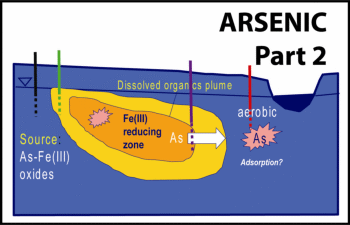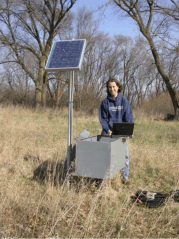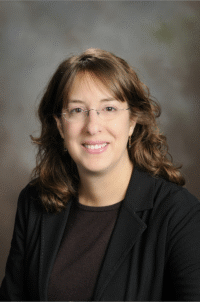On-Demand Webinars
ARSENIC IN GROUND WATER: Part 2:
Advances in Arsenic Site Investigations: Methods, Data Collection and Interpretation
Our understanding about arsenic in groundwater systems - despite the recent, large amount of research on this subject- is still in its infancy. Part 2 of this webinar series addresses characterization of arsenic-impacted sites, appropriate field methods, and techniques for data interpretation. Case studies highlight the application of these concepts to real-world problems faced by practicing environmental geoscientists and engineers. Arsenic investigations often involve very low concentrations of constituents of concern, a large degree of spatial variability in solid-phase and aqueous arsenic concentrations, and biogeochemical conditions that require careful data collection and interpretation. Following the foundation of arsenic geochemistry presented in the first webinar of the series, part two applies these concepts to a discussion of techniques useful to document and understand site-specific occurrences of arsenic in groundwater systems.

This series of webninars is designed for professionals working in the fields of environmental consulting, site remediation, groundwater investigations, water quality issues, and brown fields developments. Regulators, consultants, engineers and hydrogeologists will appreciate the real-world examples and complex conditions that are characterized and explained with interpretations of familiar types of data and basic geochemical principles.
TOPICS FOR PART TWO:
- Field and laboratory methods for solid- and aqueous-phase arsenic characterization
- Sampling and measuring for constituents to identify geochemical conditions
- Characterization of background conditions and the spatial distribution of geochemical conditions
- Case studies illustrating sources of arsenic to groundwater, geochemical mechanisms, and their manifestation in water chemistry
YOU WILL BENEFIT FROM THIS TWO-PART WEBINAR SERIES BY:
- Understanding the advantages and disadvantages of drilling and sampling methods in arsenic investigations
- Demonstration of a step-wise process to identify important geochemical processes at a site
- Conceptual models illustrating concepts of arsenic mobility and transport supported by data sets and interpretation from case studies
Instructor Bios
 Madeline Gotkowitz Madeline Gotkowitz
Hydrogeologist, Wisconsin Geological and Natural History Survey
Professor, University of Wisconsin � Extension
Madeline Gotkowitz is a research scientist at the Wisconsin Geological and Natural History Survey, where her work focuses on regional groundwater flow and transport modeling, subsurface fate and transport of human enteric viruses, and flow and transport across aquitards. Gotkowitz's field-based investigations of arsenic in groundwater address conditions in surficial and bedrock aquifers, and the affect of well disinfection on arsenic release. Gotkowitz holds a B.A. in Environmental Sciences from Smith College and an M.S. in Hydrology from New Mexico Institute of Mining and Technology.
 Madeline Schreiber Madeline Schreiber
Associate Professor, Geosciences
Virginia Tech University
Madeline Schreiber's research in chemical hydrogeology involves analysis and quantification of chemical and biological processes that impact contaminant transport. Over the past 10 years, Schreiber and her students have focused on biotransformation of both organic and inorganic species by subsurface microorganisms, adsorption of arsenic species (organic and inorganic) to subsurface materials, and release of trace elements from minerals during oxidative and reductive dissolution. Her work has been funded by the National Science Foundation, the U.S. Department of Agriculture, the National Institutes for Water Research, and private foundations. Schreiber received PhD and MS degrees from the University of Wisconsin-Madison and a BS degree from Yale University.
| Fee: |
299.00 USD Per Webinar
|
| Materials and Downloads: |
Session Slides (PDF)
Record of Attendance Form (PDF)
|
Number of
Participants: |
AS OF JUNE 1, 2020, WEBINARS ARE PRICED FOR INDIVIDUALS WORKING ALONE. Pricing is discounted for individual registrations for people working alone.
|
Continuing
Education
Certificates: |
$14.95 each. Official CEU certificates are available as an option. After successful completion of this webinar, a link will be provided to order a certificate.
|
| Access: |
On-demand, anytime 24/7. |
| Discounts: |
Buy 3 on-demand webinars, and get 3 on-demand webinars for free!
|
| Duration: |
90 minutes |
| PDH Earned: |
1.5 hours |
| |
|
| Instructor(s): |
Madeline Gotkowitz, PG. and Madeline Schreiber, PhD. |
|
Become A Member
It's Free, It's Easy and as a
Member you'll enjoy...
- Exclusive Videos
- Special Pricing
- And Much More
|
|
Join
|
Learn More
|
Association of Environmental
& Engineering Geologists
|